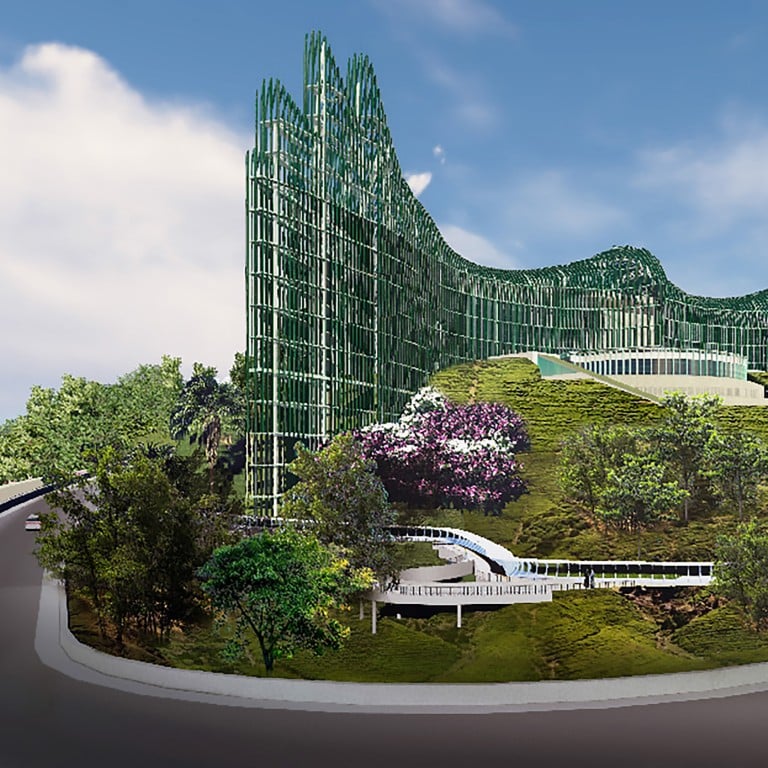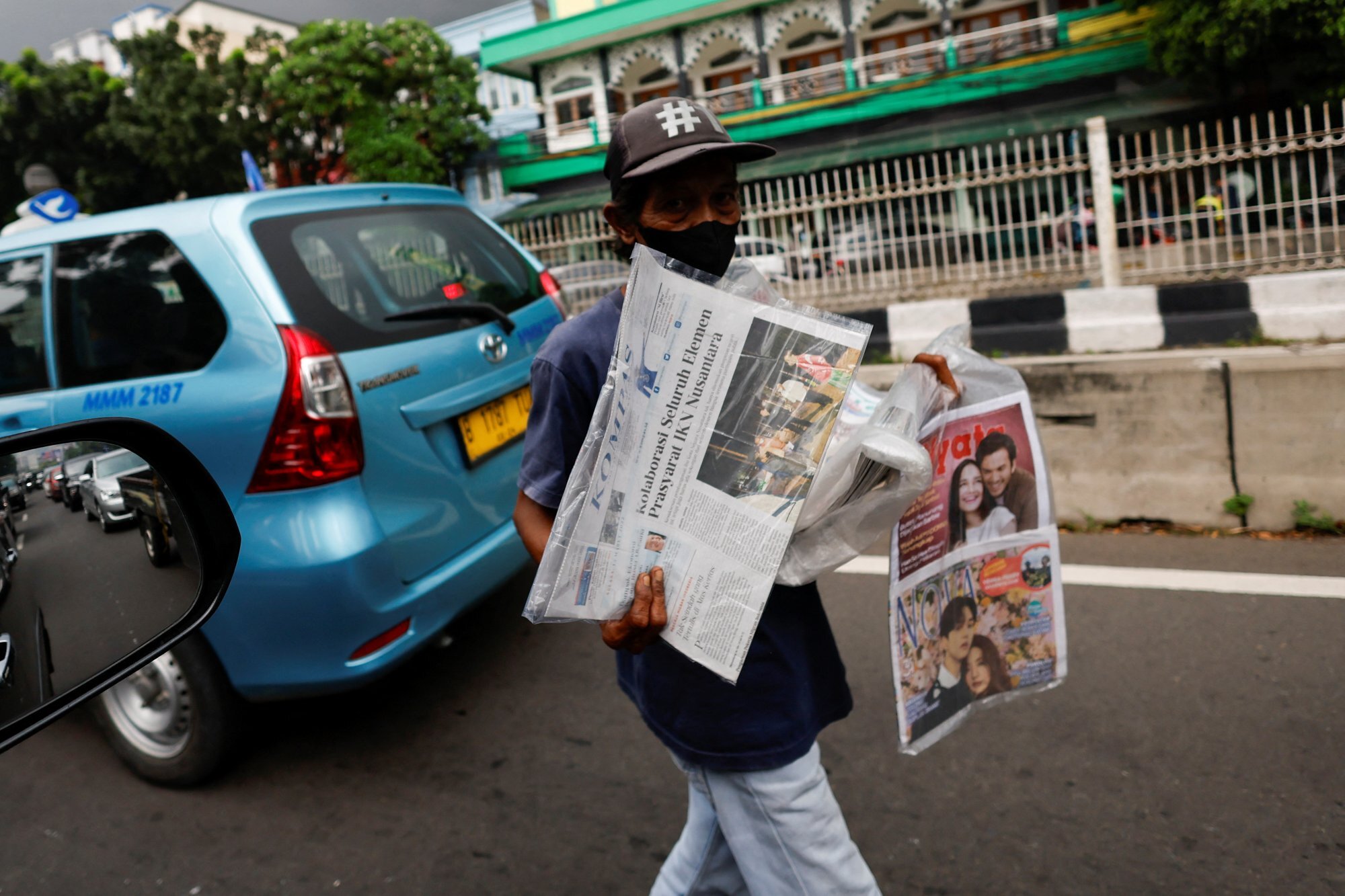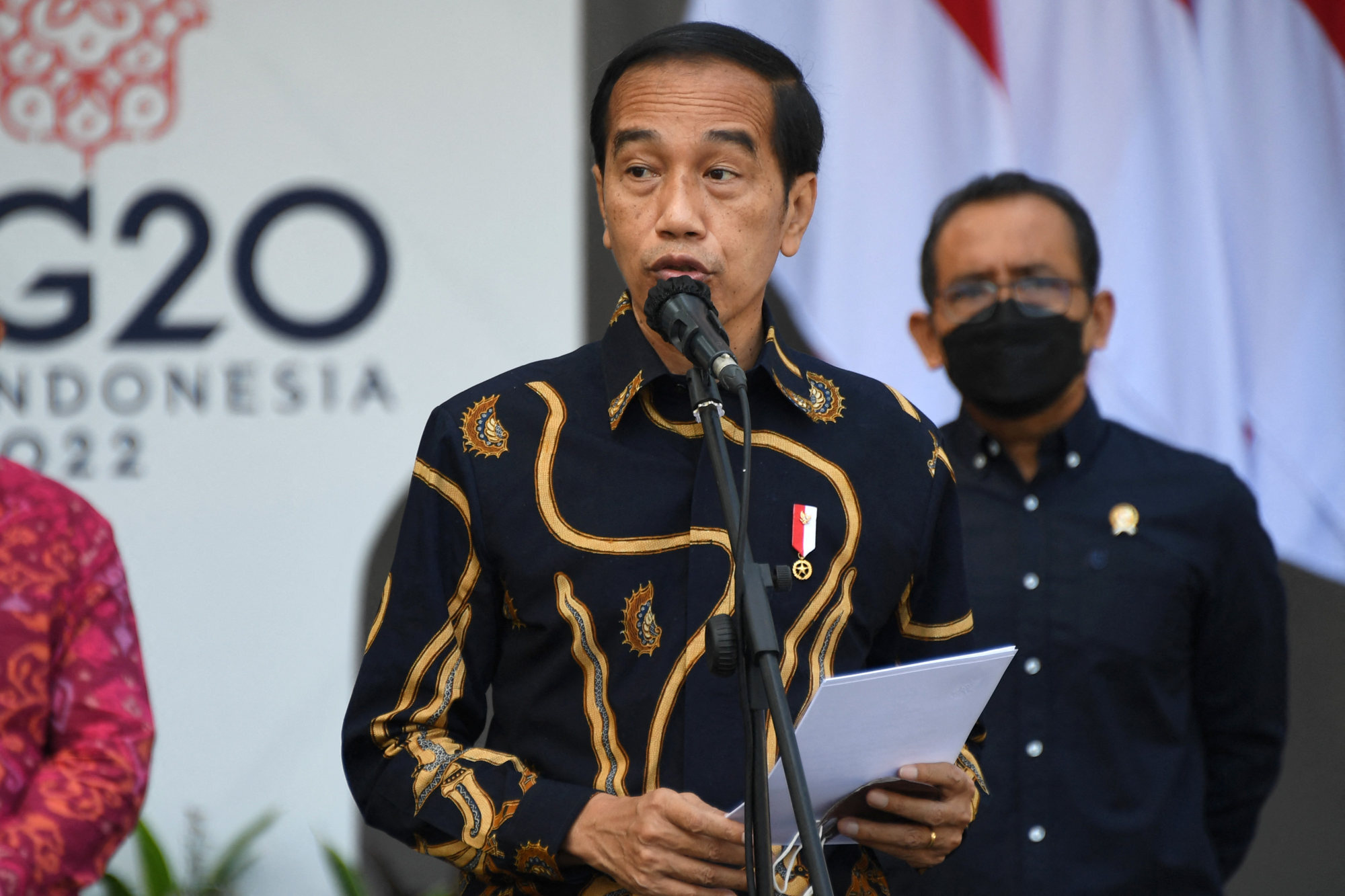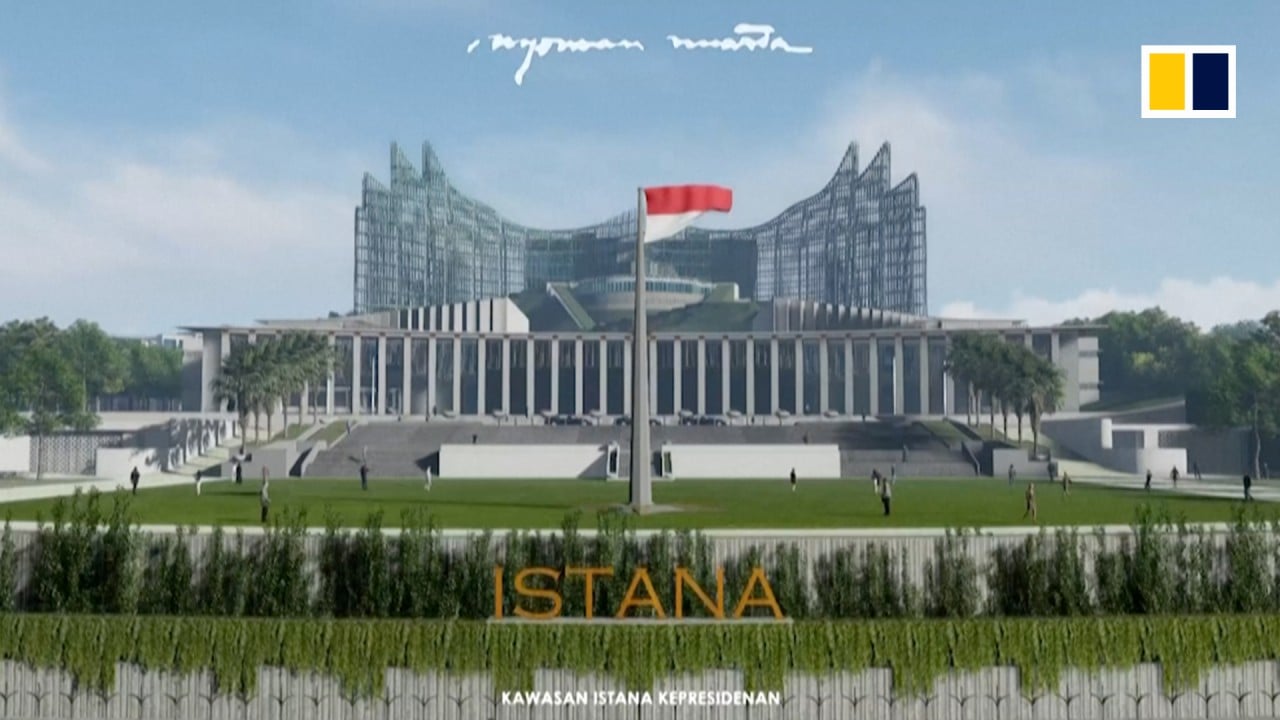
Softbank’s exit from Indonesia’s new capital project sees it turn to Saudi Arabia, UAE and crowdfunding
- Indonesia needs investors for its Nusantara development in Borneo as state funds will only cover a fifth of US$34 billion project
- Failure to secure funding for the project will leave a stain on President Joko Widodo’s legacy, say analysts
Coordinating Minister of Maritime and Investment Affairs Luhut Pandjaitan, in revealing SoftBank’s exit, attributed it to “decline in their share price” and Saudi Arabia’s withdrawal of funds from the company’s venture capital arm Vision Fund 2.
SoftBank suggested otherwise. In a statement, its board director Ken Miyauchi said: “Return of investment, whether from timing or the amount of ROI itself, is the main reason why we were backing out from the project.”
Miyauchi was quick to add in his statement that SoftBank would continue investing in Southeast Asia’s largest economy, which is home to 270 million people.

Citing his boss Masayoshi Son, Miyauchi said SoftBank will shift money previously allocated for Nusantara to “provincial-level developments in Indonesia, for example to West Sumatra, whose potentials we are still exploring”.
In January 2020, Luhut told reporters the Japanese tech firm would inject up to US$100 billion into the new capital city, but SoftBank’s founder and chief executive Masayoshi Son at that time said there were no discussions between both parties about investment amounts.
‘Hard to see the idea’: Indonesia names new US$34b capital ‘Nusantara’
According to the minister, the UAE will invest around US$20 billion in Nusantara through Indonesia’s newly established sovereign wealth fund.
‘Unrealistic’ crowdfunding
Analysts expect the Widodo administration will face an uphill battle to salvage the project which has gotten mixed reviews. Widodo, popularly known as Jokowi, has said Nusantara will be a world-class, sustainable city. State funds will be used only to cover a fifth of the project’s US$34 billion price tag.
Nusantara’s newly-appointed authorities last week floated ideas to close the funding gap, including using state-backed properties or assets, implementing government and business entity cooperation schemes and using equity-backed funding from the private sector. More unusual suggestions were also offered, such as philanthropy, a corporate social responsibility fund, and crowdfunding.
The last idea has raised many eyebrows in Indonesia, given the pandemic-era economic hardship. Indonesia’s GDP grew 3.7 per cent last year, a jump from 2020’s contraction of 2 per cent but still below the 5 per cent pre-pandemic annual growth trend.
Asia’s obsession with the supernatural haunts Indonesia’s debate on capital Nusantara
The country is accustomed to crowdfunding when it comes to social projects or financing small and medium enterprises, but not for a government-backed mega project like building a new capital city from scratch, said Azyumardi Azra, one of Indonesia’s most prominent Muslim scholars with Syarif Hidayatullah State Islamic University in Jakarta.
“While Indonesians are generous, they are more likely to donate their money to natural disasters or the construction of houses of worship than to build governmental offices,” he said.
Bhima Yudhistira, executive director at Jakarta-based Center for Economic and Law Studies said with SoftBank backing out, it would not be easy to attract foreign investors to fund the Nusantara development.
“The technical proposal remains unclear and there is no guarantee [that there will be many] occupants [there] in the long run,” he said.

Getting funds from Saudi Arabia will not be easy either. Bhima pointed out that Riyadh is currently trying to boost its investments in oil and gas projects due to rising crude oil prices. Saudi Aramco, for example, increased its investments in oil and gas projects by 50 per cent for 2022, he said.
The project also does not align with Saudi Arabia’s future goals. The country’s 2030 vision focuses on green energy, technology, and agriculture sectors, and Indonesia’ new capital city is “vulnerable to social conflicts that might arise during the land procurement process, as well as the threat it brings to the environmental sustainability [in Borneo],” Bhima said.
In Southeast Asia, Saudi Arabia also prefers to invest in Malaysia, as “it has more financial instruments compared to Indonesia, particularly in sharia-based financial instruments,” he said.
Saudi Arabia’s investments in Indonesia have been on a downward trend in the past decade – totalling US$3.6 million last year, compared to $30.4 million in 2015.
The UAE’s funding in Indonesia also slowed in the past two years. As of November last year, the country’s investment realisation was $7.8 million, down considerably from nearly $70 million in 2018.
Legacy project
However, Indonesia has boosted its bilateral relationship with the UAE in the past years, which includes closer personal ties between both countries’ top officials. Widodo’s name, for example, has been immortalised in a segment of the road leading to the embassies’ area in Abu Dhabi in October 2020. Jakarta reciprocated a few months later by naming a busy highway outside the capital MBZ Toll Road, in reference to the initials of Abu Dhabi’s de factor ruler, Crown Prince Mohamed bin Zayed.
During a recent visit to Abu Dhabi, Widodo also secured an investment commitment of US$44.6 billion from several UAE companies.

Asked if there is a path for the UAE to use its planned investment in the new capital as leverage in getting Jakarta to normalise ties with Israel – as Abu Dhabi did in August 2020 – Azyumardi from State Islamic University said that funding the Nusantara construction alone will not be enough to push Indonesia to establish a diplomatic relationship with Israel.
“I don’t think Saudi Arabia and the UAE are interested in investing in the new capital city, let alone tying it with efforts to normalise Indonesia’s ties with Israel. Arab countries know that building a relationship with Israel is a sensitive issue among Indonesian Muslims, so this can backfire on Saudi or UAE’s [relationships with Indonesia],” he said.
Analysts agree that Jakarta’s ability – or lack thereof – to secure investments for Nusantara will colour how the public views Widodo’s time in office, which is constitutionally limited to two terms. The administration intended for it to be part of his legacy, and when several political leaders within his coalition recently flouted the idea of extending his term beyond 2024, it was seen as a way to give the government more time to secure funding.
“That might be the hidden reason behind this idea to extend [Jokowi’s presidential term]. But whether the president is granted a third term, the new capital will not be finished under his leadership due to many factors,” Azyumardi said.
“The government’s struggle to fund the development of the new capital city, in particular, will be the main reason why this project may be stalled and turn it into Jokowi’s negative legacy.”


